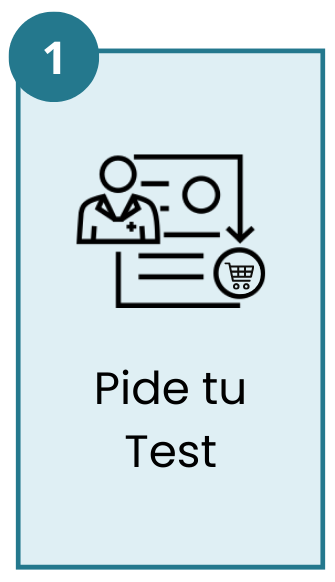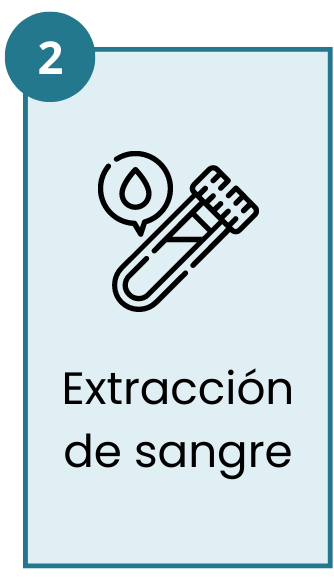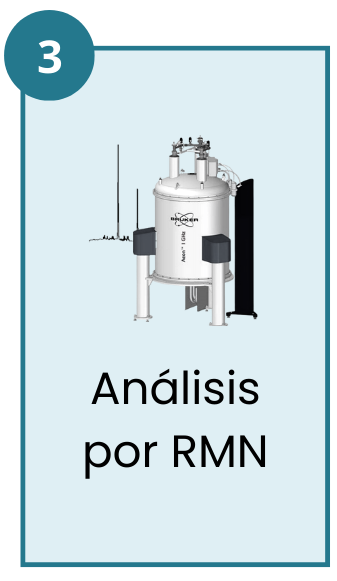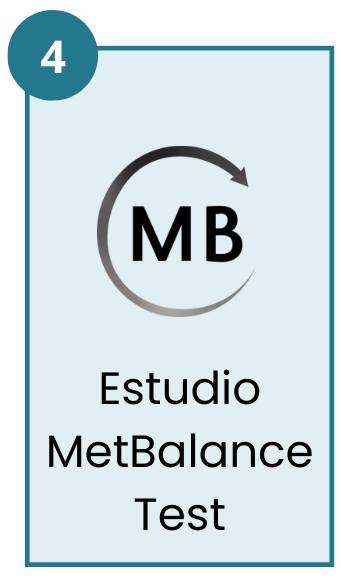MetBalance Test
Monitoriza tu salud metabólica y revoluciona la manera de cuidarte
Conoce tu bienestar metabólico
MetBalance Test es mucho más que un análisis de sangre. MetBalance Test te permite conocer tu porcentaje de salud global y tu edad metabólica.
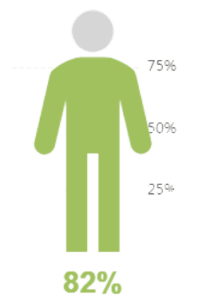

Una técnica revolucionaria
MetBalance Test analiza una amplia variedad de datos moleculares a partir de una única muestra de sangre mediante la combinación de tecnologías de vanguardia: metabolómica basada en Resonancia Magnética Nuclear e Inteligencia Artificial.
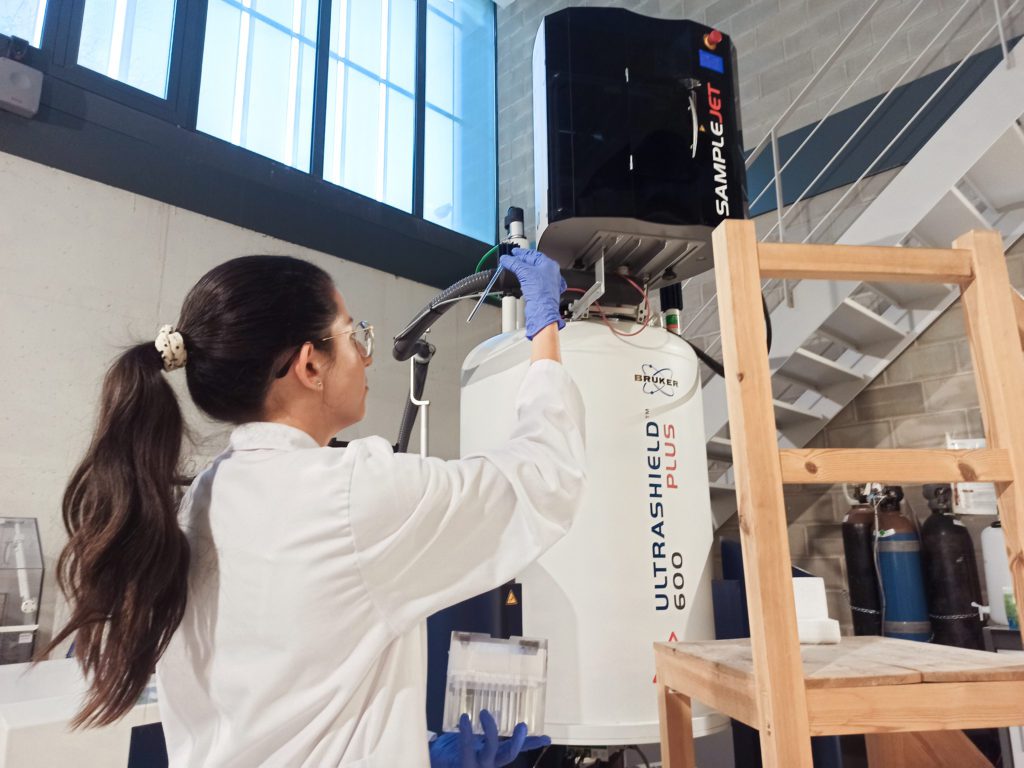
Nuestra técnica combina el análisis de la muestra por resonancia magnética nuclear con algoritmos de inteligencia artificial para comparar tus resultados con los valores de referencia de una población sana de edad equivalente.
Como resultado genera una serie de puntuaciones de salud metabólica.
La ciencia nos avala
Nuestro equipo cuenta con más de 90 publicaciones en revistas científicas de referencia a nivel mundial.






Todos los resultados y puntuaciones otorgados por MetBalance Test están basados en evidencia científica.
Fácil y Rápido
Obtén toda la información que necesitas en cinco simples pasos.
Toda la información que necesitas
MetBalance Test analiza todos aquellos parámetros necesarios para evaluar tu salud metabólica.

Parámetros Antropométricos

Salud Cardiovascular

Función Renal

Metabolismo Energético

Inflamación

Masa Muscular
¿Qué más obtendrás?

MetBalance Test te permite conocer de forma clara qué parámetros necesitan una intervención para mejorar tu salud metabólica.
MetBalance Test es mucho más que un análisis de sangre, es toda tu salud metabólica en un solo test.
¿Te sumas a la revolución de la salud metabólica?


